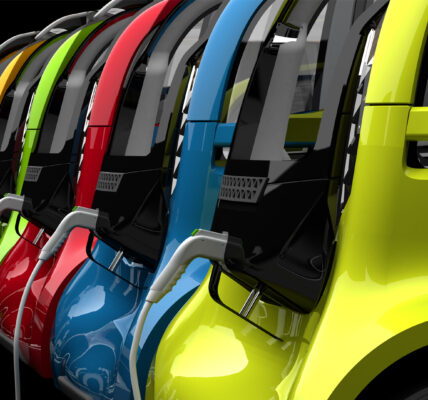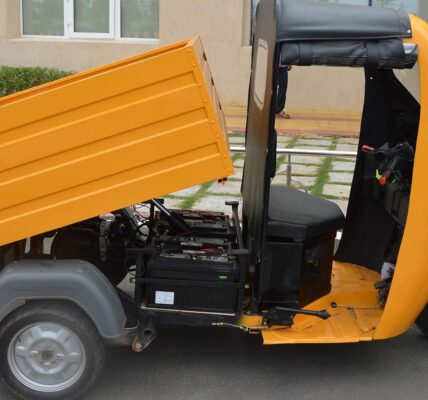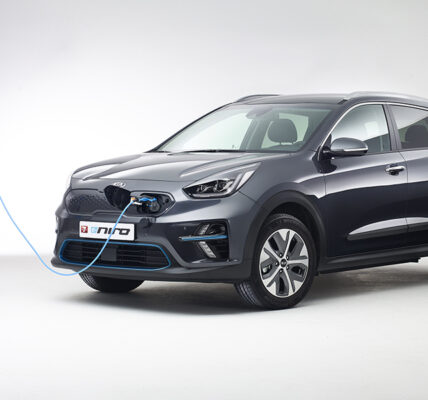The global hub motor market for electric vehicle is expected to reach US$ 27.4 Bn mark by the end of 2030. Automotive companies are increasingly focusing on minimizing air pollution and depletion of conventional fossil fuels to gain a competitive edge in the hub motor market for electric vehicle. In their efforts to attain these objectives, automotive companies are pinning their hopes on electric and hybrid hub motors due to which, the demand for hub motors is expected to scale up during the forecast period.
At present, players operating in the current hub motor market landscape are primarily engaged in addressing the limitations of the hub motor to increase its adoption. The entry of powered-internal combustion engines (ICEs) has gradually replaced hub motors due to which, the market growth could potentially slow down during the assessment period. Continual efforts are being made to reduce price, pollution, and environment-friendly hub motors to attract a larger consumer base.
As the regulatory landscape pertaining to the automotive sector continues to evolve at a rapid pace, innovations and technological advancements are expected to align with these regulatory changes. The growing demand for hub motors, particularly from the hybrid vehicles segment is expected to provide considerable boost to the global hub motor market for electric vehicle. Companies in the hub motor market for electric vehicle are primarily focusing on improving the efficiency and performance of their hub motors to solidify their position in the market.
Several market players are leaning toward deploying magnets that have been developed using non-rare-earth and low-cost elements. In addition, automotive companies are also actively engaged in enhancing motor speeds. At present, researchers are investing considerable resources to produce motors that can reach 30,000 rpm. High focus on improving thermal management, development of new motor designs, and demand for ultra-lightweight in-wheel hub motors are some of the other factors that are expected to provide a strong foundation for the growth of the hub motor market for electric vehicle during the assessment period.
Due to growing environmental concerns, the demand for electric vehicles has increased at an impressive rate worldwide. At the back of rising consumer interest for electric vehicles, the global hub motor market is projected to witness considerable growth. The adoption for hub motors in the electric vehicles space is expected to remain one of the key drivers of market growth during the assessment period. Over the past few years, electric unicycles have garnered considerable popularity across the personal transportation sector. In addition, electric unicycles are increasingly being used as a feasible solution to address last mile transportation challenges. The adoption of hub motors to manufacture electric unicycles has increased at a consistent pace over the past couple of years and the trend is expected to continue during the forecast period– a factor that is likely to boost market growth. While the demand for hub motors to develop electric unicycles is on the rise, the demand for hub motors to manufacture electric bikes is growing. As China currently leads in the production of electric bikes, it is expected to remain one of the key markets for players operating in the hub motor market for electric vehicle.
Stringent enactment of rules and regulations regarding vehicle emission norms across the globe is likely to increase the trend toward vehicle electrification. Developed counties, including the U.S. and Japan are more focused on the adoption of electric vehicles (EVs). China, Japan, Norway, and the U.S. account for nearly 80% of the global electric vehicle market, which in turn is likely to propel the hub motor market for electric vehicle across the globe.
Key players operating in the global hub motor market for the electric vehicle include ZIEHL- ABEGG, HEINZMANN GmbH & Co. KG, Protean electric, Bonfiglioli Riduttori S.p.A., ZF Friedrichshafen AG, NSK Limited, Evans Electric, Hyundai Mobis Co. Ltd., TM4 Inc., e-traction B.V., Kolektor Elaphe Ltd, NTN Corporation, Magnetic Systems Technologies, GEM Motors d.o.o, Siemens AG, Printed Motor Works, YASA Limited, Schaeffler AG.
Key players at the global level are expanding their footprint by engaging in mergers and acquisitions with several players in the industry. In June 2019, National Electric Vehicle Sweden (NEVS), a subsidiary of Evergrande Health, acquired the leading developer of in-wheel motor technology, Protean Electric. The deal highlighted significant potential of Protean Electric’s in-wheel motors (IWMs) for electrified transportation. Both companies are expected to jointly develop future propulsion solutions. In September 2017, ZF Friedrichshafen AG formed a joint venture with Beijing Automotive Industry Corporation (BAIC) for production of e-mobility components. This joint venture was formed to supply components to the BAIC Group.
-Report by Transparency Market Research







